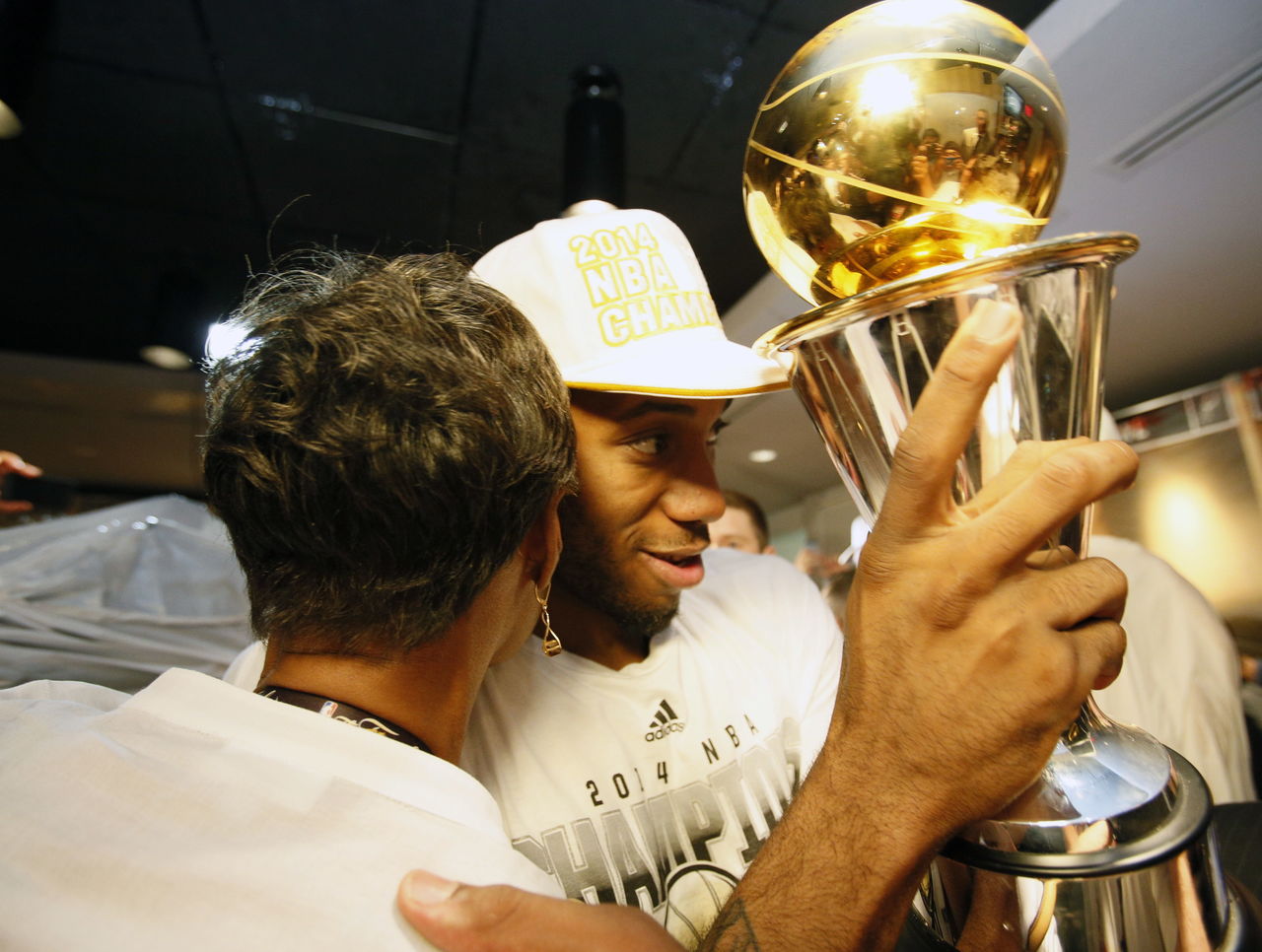Why Kawhi Leonard deserves a max contract, and why the Spurs may not give him one yet
When players and teams can’t come to an agreement on a new contract, it often involves one party greatly overestimating or underestimating the player’s abilities and on-court value.
Someone has to be wrong while one of the parties is the reasonable one.
In the case of Kawhi Leonard versus the Spurs, however, both the player and team are being completely reasonable.
Leonard reportedly wants a maximum contract extension, but Yahoo! Sports’ Adrian Wojnarowski reports that no progress has been made. The deadline to sign fourth-year players to those extensions is coming up Friday.
From Leonard’s perspective, the 23-year-old should accept nothing less than the max, whether that be the five-year, $90-million deal the Spurs could offer him if they make Leonard their designated player, or the smaller four-year max if they don’t.

Leonard’s basic per-game statistics have been mostly modest throughout his three-year career (12.8 points and 6.2 rebounds last season), but his career Usage Rate is also a pedestrian 16.5 percent. Given Leonard’s evolving offensive game, consistent three-point shooting, and overall efficiency (career Effective FG percentage of 56.1), it’s easy to see those per-game averages rising dramatically with an increased offensive role that matches his development.
Leonard is also a defensive beast, a shutdown defender who can more than competently defend multiple positions, both on the perimeter and closer to the basket.
He’s already one of the best two-way players in the game, he’s coming off a season that saw him become the youngest Finals MVP in 15 years, and the salary cap is expected to explode in the coming years in the wake of the league’s new $24-billion media rights deal.
Taking all that into consideration, and considering how much money lesser players like Gordon Hayward and Chandler Parsons got this past summer, Leonard would be unreasonable to demand anything but the max.
The thing is, the Spurs would have their own sound reasoning if they decide to let the Oct. 31 deadline pass without an agreed upon extension.
For one, there’s not much need to get this done now, when the team still controls the situation. San Antonio can match any offers to Leonard if he reaches restricted free agency, and, in fact, could get a better deal in doing so. That’s because while signing a player using a team’s Bird Rights would see him get 7.5 percent raises year-over-year, all non-Bird Rights contracts, which include matched offer sheets, contain lower 4.5 percent raises.
Sure, Leonard could choose the risky option of signing a one-year qualifying offer for next season to reach unrestricted free agency in 2016, when the cap is expected to rise significantly, but that would carry an exceptional amount of risk.
This isn’t Greg Monroe we’re talking about, who went that route because he didn’t get the offers he was looking for. Someone will offer Leonard the max next summer, so whether the Spurs match or not (they would almost surely match), going the qualifying offer route would mean giving up guaranteed max money to wait it out for a year, when unfortunate things can happen.
There’s also the fact that future Hall of Famers like Tim Duncan, Tony Parker, and Manu Ginobili have all taken far less than their market value to remain with the Spurs in the past. None of those legends make more than $12.5 million right now.
That shouldn’t be of any concern to Leonard in his quest to maximize his own value, in an entirely new NBA landscape, but the Spurs can no doubt use that fact in their negotiations.
Leonard and the Spurs will probably eventually come to an agreement, whether that be this week or next summer. It may seem odd that a player and team who fit together so perfectly and have enjoyed so much success together would let negotiations linger at all, but both have their good reasons.